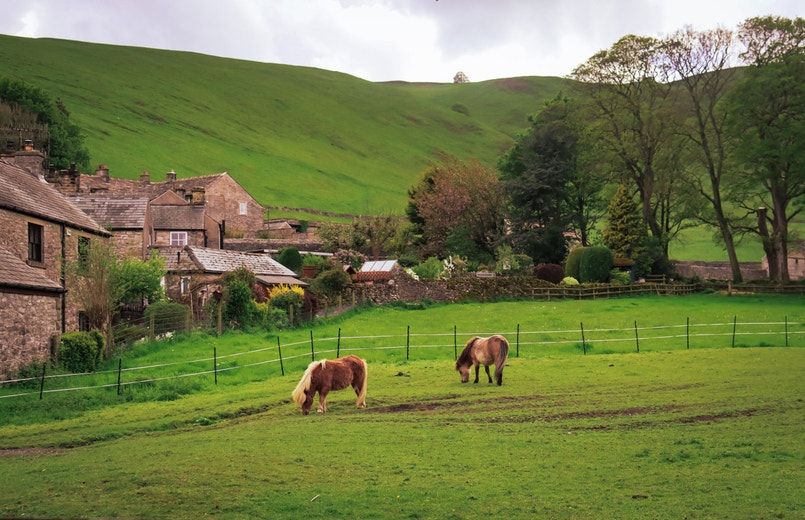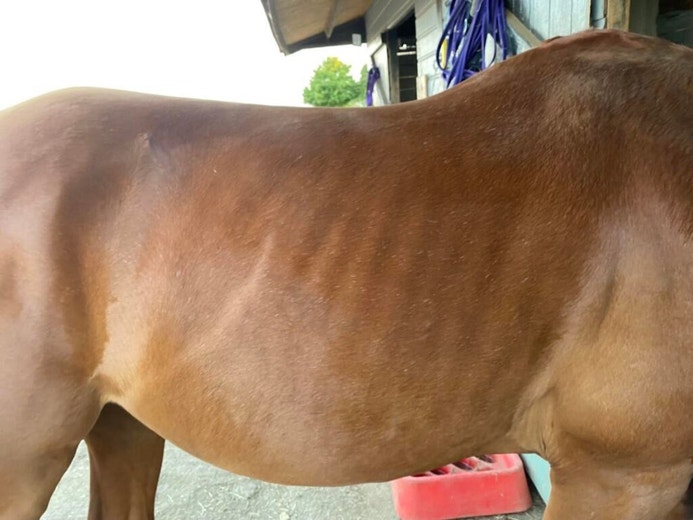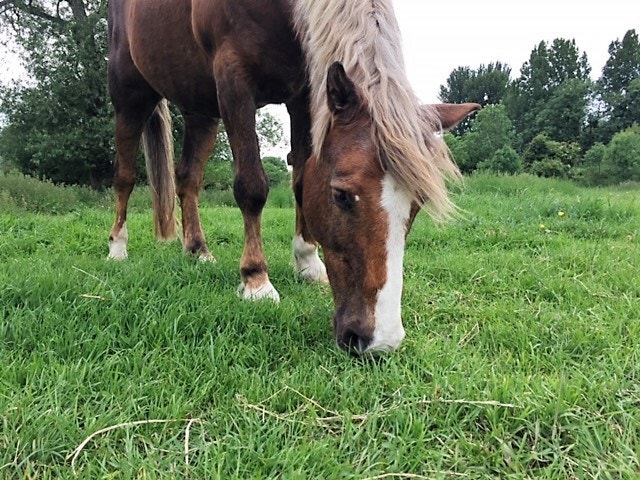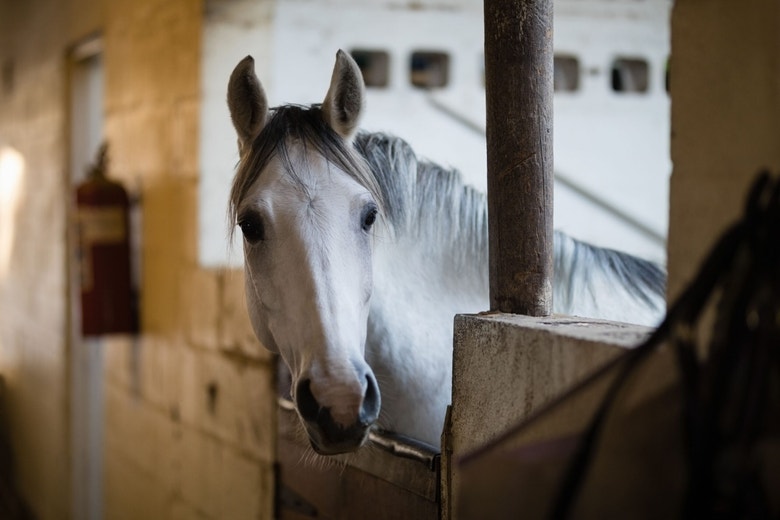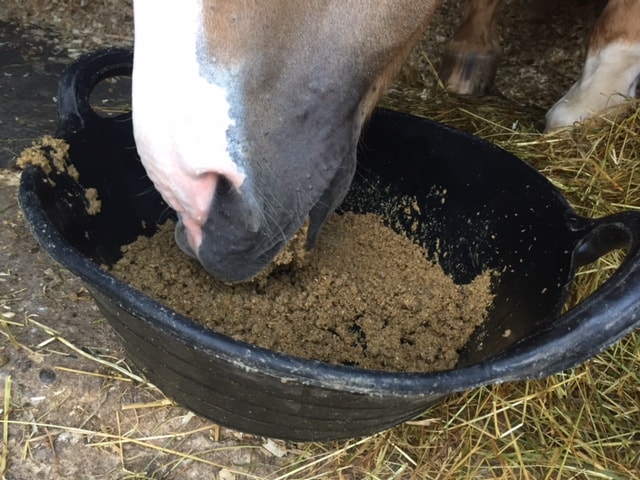
Competing with gastric ulcers: What you need to know
With gastric ulcers thought to affect approximately 60% of competition horses (and up to 50% of leisure horses), it’s no surprise we receive lots of questions about gastric ulcers on yard and via our Care-Line. With many owners thinking concerned about gastric ulcers, we thought it helpful to share a few tips on feeding competition horses prone to gastric ulcers.
For more information on causes, risk factors and symptoms download our FREE guide; ‘Equine Gastric Ulcers: Everything you need to know’.
Forage
Saliva provides a natural buffer to stomach acid but unlike people, horses only produce saliva when they chew. So ideally provide as much forage as your horse will eat to keep them chewing longer - but be mindful of excess waste. Basing as much of the diet on forage as possible also helps to reduce the reliance on ‘bucket feed’ for energy (calories).
-Avoid long periods without forage - in one study, periods of more than 6 hours without forage significantly increased the risk of non-glandular ulcers.
-If your competition horse is prone to weight gain, consider feeding soaked hay. Soaking hay helps to reduce the water-soluble carbohydrate or ‘sugar’ content and of course, less sugar means fewer calories!
-Provide forage while travelling, ensure your horse has access to forage throughout the journey. Large holed haynets may be more suitable for those that can lose their appetite. On very long journeys offer them high fibre meals if they’re not tucking into their forage.
-Consider feeding hay/ haylage in multiple, double-layered, small holed haylage nets to help extend eating time for those on restricted rations or super speedy eaters. Alternatively, try dividing forage into multiple smaller servings or using ‘slow feeders’.
-Total forage intake should not be to be restricted to less than 1.5% of current bodyweight per day on a dry matter basis. On an as fed basis (the amount you need to weigh out), this equates to approximately 9kg of hay if you intend to feed it dry, 11kg of hay if you intend to soak it before feeding or 11-12kg of haylage for a 500kg horse without grazing.
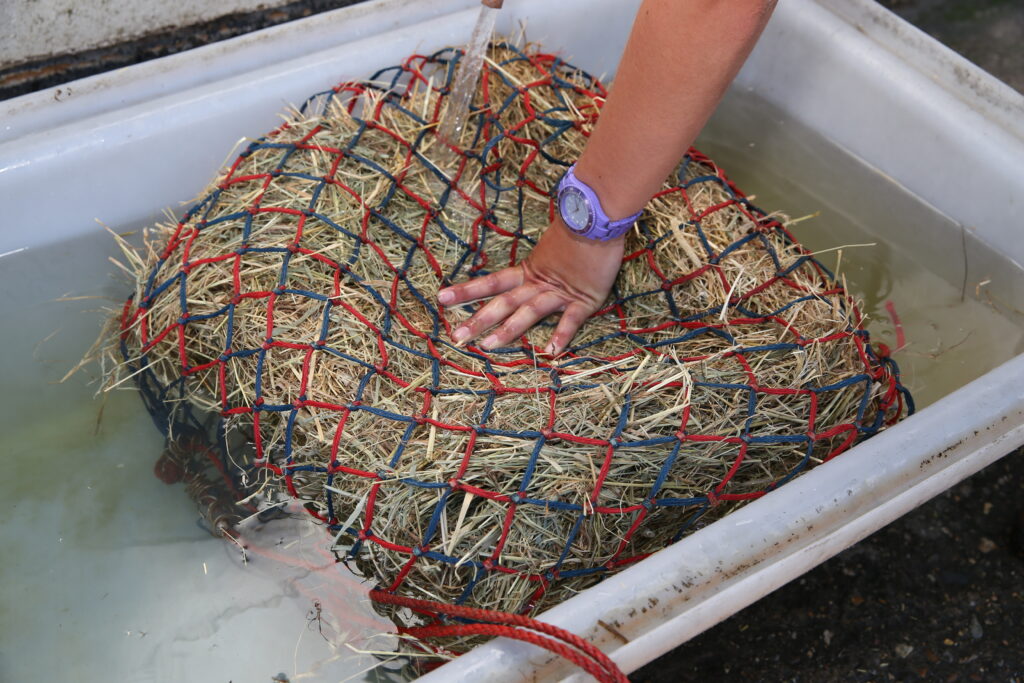
Low NSC diets
Diets high in non-structural carbohydrate (NSC: starch + water soluble carbohydrate) or ‘starch and sugar’ increase the risk of gastric ulcers.
-Choose fibre-based feeds containing low or restricted levels of starch and sugar.
-If your horse needs a high energy (calorie) feed, look for feeds high in oil as opposed to starch.
-Restrict NSC from ‘bucket feed’ to less than 1g per kilogram bodyweight per meal (<500g per meal for a 500kg horse) and ideally less than 2g per kilogram bodyweight we per day (<1kg per day for a 500kg).
Always provide a balanced diet
Feeding the recommended amount of an appropriate compound (or other feed containing added vitamins and minerals) will ensure your horse receives a balanced diet. SPILLERS Ulca Power Cubes are formulated to provide calories, ensure a balanced diet and provide a heap of digestive support too! However, the amount of energy (calories) in your horse’s diet should be adjusted according to their body condition.
For horses who maintain condition well on smaller rations of feed, balancers are a great way of suppling vitamins, minerals and amino acids but few calories - SPILLERS Ulca Balancer specifically includes support for the whole digestive tract too. Balancers are also ideal if you prefer to provide them with calories from fibre-based feeds which don’t contain added vitamins and minerals, such as SPILLERS Alfalfa-Pro Fibre, instead of cubes or mixes.
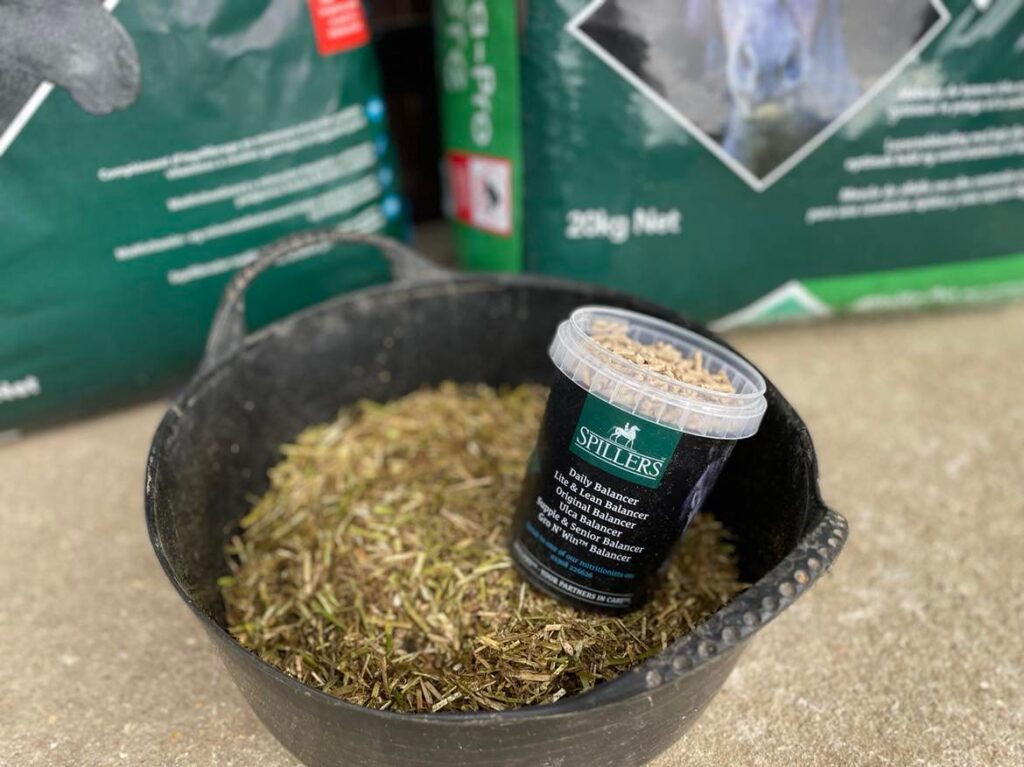
Short chopped fibre
Exercise increases abdominal pressure, causing acid to ‘splash’ on to the stomach lining in the non-glandular region where it increases the risk of ulcers forming. Feeding short chopped fibre helps to prevent so called ‘gastric splashing’ by forming a protective ‘fibre mat’ on top of the contents of the stomach. Current advice is to feed 2 litres of short chopped fibre (by volume - equivalent to 1 Stubbs scoop) in the 30 minutes before exercise.
It’s also advisable to add short chopped fibre, ideally containing alfalfa, to meals. Feeding short chopped fibre helps to extend eating time (and as a result saliva production) and the high protein and calcium content in alfalfa is thought to help buffer stomach acid.
Can supplements help?
Some owners see great results from using well-formulated supplements such as SPILLERS Ulca Ease. It contains ingredients which help buffer stomach acid, help maintain the delicate mucosal lining of the stomach and the mucus that lines the digestive tract. Look for ingredients which benefit stomach health rather than hindgut health and always feed a suitable base diet first.
Electrolyte usage
Electrolyte losses are linked to sweat loss – the more your horse sweats the more electrolytes they lose. Horses sweating regularly are likely to need some form of electrolyte replacement and in most cases, salt (the same salt you put on your chips) is an effective and cost-effective solution. We recommend avoiding electrolyte pastes for those prone to gastric ulcers - in one study, multiple hypertonic electrolyte pastes were seen to significantly increase the number and severity of gastric ulcers. For more advice on feeding electrolytes contact the SPILLERS Care-Line.
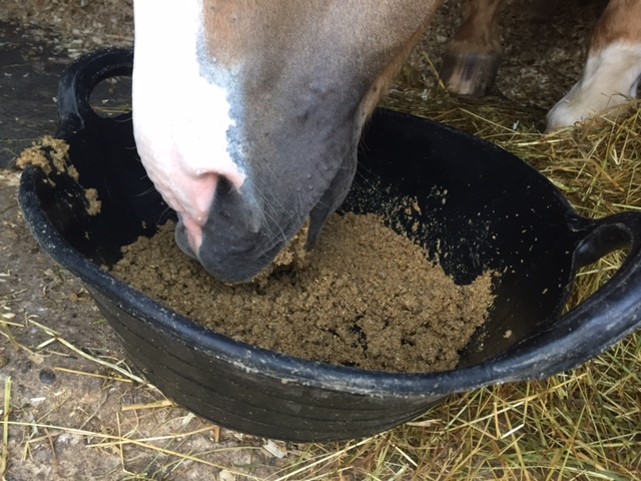
For more advice on feeding horses prone to gastric ulcers contact the SPILLERS Care-Line.
Updated 14.10.2025
